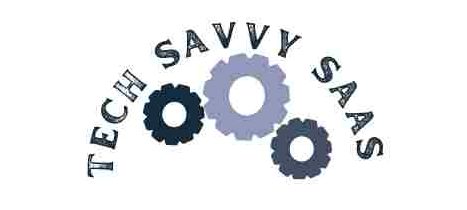Have you ever stepped into the dynamic world of online debate platforms, where students immerse themselves in discussions, exchange ideas, and flourish intellectually?
Introduction to Online Debate Platforms: In today’s rapidly evolving educational landscape, online debate platforms have emerged as transformative tools that transcend physical boundaries, connecting students from diverse backgrounds in virtual spaces where ideas flourish and knowledge is exchanged. These platforms provide a digital forum for structured debates, discussions, and collaborative learning, enhancing the traditional classroom experience in unprecedented ways.
At the heart of effective learning lies student engagement. When students are actively involved in the learning process, they become more invested in their education, leading to deeper understanding, retention of knowledge, and the development of critical skills necessary for success in the 21st century. Engaged students are not passive recipients of information but rather active participants who contribute to and shape their own learning journey.
Thesis Statement: Online debate platforms offer a myriad of benefits for student engagement, serving as catalysts for intellectual growth and fostering a vibrant learning community that transcends the constraints of traditional classroom settings. By harnessing the power of technology, these platforms revolutionize the educational experience, empowering students to engage in meaningful discourse, hone their critical thinking skills, and collaborate with peers on a global scale.

Enhancing Critical Thinking Skills
Online debate platforms serve as fertile grounds for the cultivation of critical thinking skills among students. Through engaging in structured debates and discussions, students are challenged to analyze complex issues, evaluate arguments, and formulate well-reasoned responses.
Real-life examples vividly illustrate the transformative impact of online debate platforms on students’ critical thinking abilities. Consider a scenario where students, divided into opposing teams, delve into a heated debate on the ethical implications of emerging technologies. As they delve deeper into the discussion, they are compelled to consider diverse perspectives, weigh evidence, and construct logical arguments to support their viewpoints.
The importance of critical thinking cannot be overstated in both academic and professional spheres. In academia, the ability to think critically enables students to navigate through vast amounts of information, discern credible sources, and construct informed opinions. Similarly, in the professional world, individuals who possess strong critical thinking skills are better equipped to solve complex problems, make sound decisions, and adapt to ever-changing environments.
Encouraging Collaborative Learning
Online debate platforms serve as catalysts for collaborative learning, fostering an environment where students can engage in meaningful discourse, exchange ideas, and co-construct knowledge with their peers. Through these platforms, students are not merely passive recipients of information but active participants in the learning process.
Facilitating Collaborative Learning Environments
Online debate platforms provide students with a virtual space to collaborate and interact with their peers in real-time. Unlike traditional classroom settings, where discussions may be limited by time constraints or physical barriers, these platforms offer flexibility and accessibility, allowing students to engage in discussions at their own pace and convenience. Whether they are in different time zones or continents apart, students can come together to share their perspectives, challenge each other’s ideas, and collectively explore complex topics.
Examples of Collaborative Learning in Action
Consider a scenario where students are tasked with analyzing a case study related to environmental conservation. Using an online debate platform, they form teams and engage in discussions to identify key issues, brainstorm potential solutions, and debate the merits of different approaches. As they collaborate with their peers, students draw upon their collective knowledge and expertise, gaining new insights and perspectives that they may not have considered on their own.
Significance of Teamwork and Cooperation
Teamwork and cooperation are fundamental skills that are highly valued in educational settings and beyond. By participating in collaborative learning activities on online debate platforms, students develop essential teamwork and cooperation skills, such as communication, negotiation, and conflict resolution. They learn how to work effectively with others, leverage each other’s strengths, and overcome challenges together.
Experienced instructors play a crucial role in facilitating collaborative learning on online debate platforms. By providing guidance, encouragement, and constructive feedback, instructors empower students to actively participate in discussions, take ownership of their learning, and contribute meaningfully to the collective knowledge of the group.
Amplifying Student Participation
Online debate platforms serve as powerful tools for amplifying student participation levels, transforming passive learners into active contributors within the virtual classroom. By creating an inclusive and interactive environment, these platforms encourage students to engage meaningfully with course content and their peers.
Increasing Participation Levels
Online debate platforms provide students with various avenues to participate in discussions, debates, and collaborative activities. Unlike traditional classroom settings, where only a few students may dominate the conversation, these platforms allow every student to have a voice and contribute their ideas. Whether through text-based discussions, live video sessions, or multimedia presentations, students can actively engage with course content and interact with their peers in real-time.
Strategies for Active Involvement
To encourage active involvement, instructors can employ various strategies, such as gamification and incentives. Gamification involves incorporating game-like elements, such as points, badges, and leaderboards, into the learning experience to motivate students and reward their participation. For example, instructors can award points for active participation in discussions, completion of assignments, or successful completion of quizzes. Incentives, such as extra credit or rewards, can also encourage students to participate more actively and consistently.
Impact on Student Learning Outcomes
Increased student participation has a significant impact on learning outcomes. When students actively engage with course content and participate in discussions, they are more likely to retain information, deepen their understanding of key concepts, and develop critical thinking skills. By sharing their perspectives, asking questions, and challenging each other’s ideas, students engage in collaborative learning and construct knowledge collectively. Moreover, active participation fosters a sense of ownership and accountability among students, leading to greater investment in their learning journey.
Creating a non-threatening environment is essential to fostering student participation on online debate platforms. Instructors should create a supportive and inclusive atmosphere where students feel comfortable expressing their opinions, asking questions, and engaging in constructive dialogue. By fostering a culture of respect, empathy, and open-mindedness, instructors can ensure that all students feel valued and empowered to participate actively in the learning process.
Fostering Communication Skills
Online debate platforms serve as invaluable tools for fostering communication skills among students, enabling them to develop the ability to articulate their thoughts effectively, engage in meaningful dialogue, and persuade others through reasoned arguments.
Through active participation in online debates and discussions, students have the opportunity to refine their communication abilities in a variety of ways. They learn how to express their ideas clearly and concisely, structure their arguments persuasively, and respond thoughtfully to opposing viewpoints. Moreover, the asynchronous nature of online communication allows students to carefully craft their responses, revise their arguments, and engage in reflective thinking before sharing their thoughts with their peers.
Real-Life Anecdotes
Real-life anecdotes provide compelling evidence of the transformative impact of online debate platforms on students’ communication skills. Consider a student who initially struggled with public speaking but, through regular participation in online debates, gradually gained confidence and proficiency in expressing their ideas. As they honed their public speaking and persuasion skills, they not only excelled academically but also felt more empowered to communicate effectively in various aspects of their personal and professional life.
Importance of Effective Communication
Effective communication is essential in various aspects of life, from academic and professional settings to interpersonal relationships and civic engagement. In academia, the ability to communicate clearly and persuasively is crucial for success in coursework, presentations, and collaborative projects. In the professional world, strong communication skills are highly valued by employers and are often cited as essential attributes for career advancement and leadership roles.
The concept of transactional distance, introduced by educational theorist Michael G. Moore, emphasizes the importance of effective communication in distance education. Online debate platforms help bridge the transactional distance between students and instructors by facilitating meaningful interactions and fostering a sense of online engagement and community. By providing a platform for students to engage in dialogue, share ideas, and receive feedback from their peers and instructors, these platforms create opportunities for collaborative learning and knowledge exchange.
Overcoming Distance Barriers
Online debate platforms serve as powerful tools for overcoming distance barriers, allowing students from diverse geographic locations to come together in virtual spaces and engage in meaningful discussions, debates, and collaborative activities.
Transcending Geographical Limitations
One of the primary advantages of online debate platforms is their ability to transcend geographical limitations. Regardless of where students are located—whether they are in different cities, states, or countries—they can connect with each other in real-time through digital platforms. This enables students to collaborate on projects, exchange ideas, and participate in discussions without being constrained by physical distance.
Examples of Diverse Engagement
Examples abound of students from diverse backgrounds engaging in meaningful discussions on online debate platforms. Consider a scenario where students from various countries participate in an international conference hosted on a virtual platform. Throughout the conference, students share their perspectives on global issues, exchange cultural insights, and collaborate on solutions to shared challenges. By engaging with peers from different cultural, linguistic, and socioeconomic backgrounds, students gain a deeper understanding of the world around them and develop empathy and appreciation for diversity.
Importance of Inclusivity and Diversity
Inclusivity and diversity are essential values in educational settings, as they enrich the learning experience and prepare students to thrive in a multicultural world. Online debate platforms play a crucial role in promoting inclusivity and diversity by providing a platform for students from different backgrounds to participate in discussions and contribute their unique perspectives. By fostering a culture of respect, empathy, and open-mindedness, these platforms create an environment where all students feel valued and empowered to share their ideas.
The COVID-19 pandemic has further underscored the importance of online debate platforms in overcoming distance barriers. With traditional classroom settings disrupted by lockdowns and social distancing measures, educators and students alike have turned to online platforms to maintain continuity in education. Online debate platforms have emerged as essential tools for facilitating remote learning, enabling students to stay connected, engaged, and informed despite physical distance.
More Post
- Cybersecurity for Online Learning Platforms: Ensuring Student Privacy
- How to Adaptive Learning Platforms: Tailoring Education to Individual Progress
- Social Learning Platforms: Creating Online Learning Communities
- How do implement 1:1 device programs in schools?
- Can We Unravel the Secrets of the Dark Web? Understanding Cybercrime Hideouts and Their Impact






